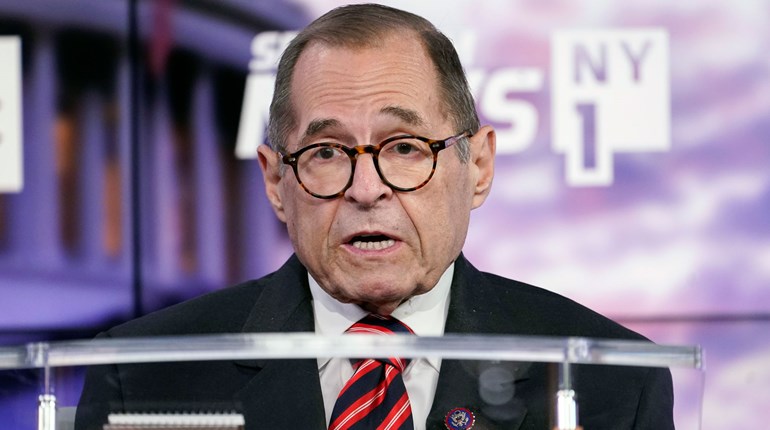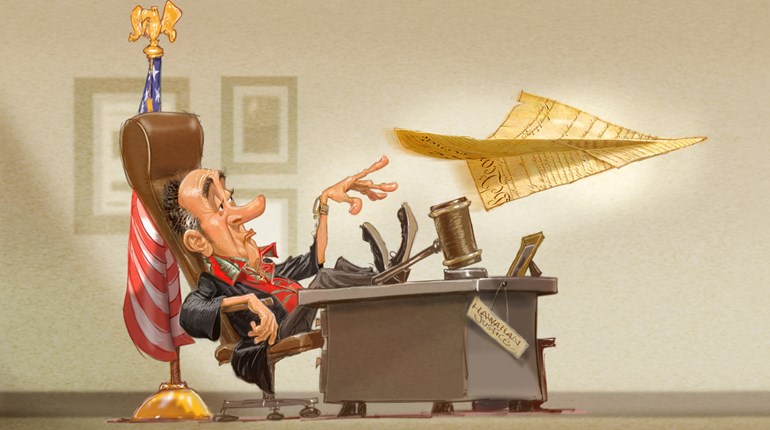
This feature appears in the October ‘16 issue of NRA America’s 1st Freedom, one of the official journals of the National Rifle Association.
Hillary Clinton doesn’t have to overturn Heller to gut the Second Amendment—she simply has to make American gun owners so confused that they are afraid to practice their right to bear arms.
Should she be elected president of the United States, Hillary Clinton will be forced to get creative when attempting to enact her gun control agenda.
As is now abundantly clear, Clinton believes that the Supreme Court’s decision in District of Columbia v. Heller was incorrect and deserves to be overturned. In and of itself, this is a national disgrace, just as it was a disgrace when, in 2008, four justices who had sworn to uphold the Constitution voted to read one of the key provisions out of the Bill of Rights. And yet, while the historical vandalism that would be done by a revisionist revisiting of Heller would be almost without legal parallel, it is by no means the only threat that a Clinton presidency would pose to gun owners.

Since almost all of the recent pro-Second Amendment energy has come from the people themselves, any Clinton-led attempt to impose severe gun control would, in theory, run up against a wall—at least temporarily. But what if Clinton could find a way to circumvent those walls in both Congress and the states, and to issue instructions directly from the Oval Office? Or worse, what if she could find a way to sow confusion and uncertainty around the law, and thereby engender a chilling effect that prompts the law-abiding to do of their own volition what the president is unable to do herself? In such a case, wouldn’t a White House led by a Democrat be able to ignore popular sentiment and rule without checks? And, more alarmingly, wouldn’t it be able to do so from Day One?
As we saw recently in Massachusetts, a determined executive branch can wreak merry havoc upon the status quo. In late July, state Attorney General Maura Healey unilaterally rewrote the state’s 1998 Gun Control Act and ruled that a set of so-called “assault weapons” that had been universally acknowledged to be untouched by the statute were, henceforth, to be prohibited for public sale. The measure, Healey claimed, was mere “common sense”—a necessary maneuver taken in the interest of public safety. Never mind that not a single person was killed last year in Massachusetts by any of the types of guns that Healey sought to ban (none in 2010, 2011, 2012 and 2014, either). Never mind that the order was so badly written that it could plausibly be read to prohibit every single firearm in the state. Healey wanted a change, and she sought to get it by any means necessary—legality and propriety be damned.Whether or not the order was legal is, in truth, wholly beside the point. The damage has already been done.
Here’s the key thing. Whether or not the order was legal is, in truth, wholly beside the point. The damage has already been done.
I don’t mean to suggest that it doesn’t matter in a moral sense, of course; nor do I mean that the integrity of the political system should, as a matter of routine, be subordinated to the vagaries of executive power. Rather, I mean that it doesn’t matter practically whether Healey’s order was legal—or, indeed, how well it is ultimately enforced—because it has already had its desired effect, which, without putting too fine a point on it, was to scare the hell out of everyone involved.
Suppose, if you will, that you are a gun dealer in Massachusetts who has for the last 18 years been selling state-level AR-15s, and that one day, you get a missive in the mail explaining vaguely that from this point on you must cease to transfer about half of the items in your stock. What do you do? Do you risk it, in the hope that any vagueness in the law will be resolved in your favor? Or do you pull all of your rifles off the shelf until you can figure out what is going on? In Massachusetts, many gun stores did the latter.
Consider that in Connecticut the law allows for the open carry of firearms, but that in practice anybody who deigns to take advantage of this will be arrested for breaching the peace.In the same vein, suppose that you are a law-abiding mother who has for a while been planning to purchase a sporting rifle. Upon hearing that a set of dangerously ambiguous regulations has been promulgated by the state government, would you be more likely to wing it and attempt to obtain your desired gun as usual—at the risk of being made into a criminal if you got it wrong—or would you give up, possibly forever?
The answer, in most cases, is that those who are faced with this decision will play it safe—not, you will note, because they are wimps, but because they are aware of just how dangerous capricious power can be. Writing in Federalist No. 62, James Madison outlined the perils attendant to the law’s becoming unpredictable. “It will be of little avail to the people that the laws are made by men of their own choice,” Madison wrote. “If the laws be so voluminous that they cannot be read, or so incoherent that they cannot be understood; if they be repealed or revised before they are promulgated, or undergo such incessant changes that no man, who knows what the law is today, can guess what it will be tomorrow. Law is defined to be a rule of action; but how can that be a rule, which is little known, and less fixed?”
Or, put another way: “Who cares about the ability to vote if the rules that bind you are arbitrary?”

Because Madison had witnessed firsthand the hazards of fickle rule—and because he had a compendious understanding of both human and political history—he comprehended well how crucial consistency and coherence are to individual liberty. In places where the laws are written down and of fixed meaning; where the rules are clear to all, including the laymen; and where the regulations are sufficiently precise to be quickly consumable, citizens can remain in charge of the state. By contrast, when the practical effect of legislation is determined by the incumbent; when the law is impenetrable to all but those who issued it; and when the typical statute runs to the length of a French novel, the government is placed in a position of almost untrammeled authority. What good is there in being bound by legitimate law if that law has no shape and cannot be seen by those it binds?
By way of example, consider that in Connecticut the law allows for the open carry of firearms, but that in practice anybody who deigns to take advantage of this will be arrested for breaching the peace. The important question for the average person is, “Does Connecticut permit open carry?” The frustrating answer: “Nobody knows.”
Which brings us, inevitably, back to Clinton. As I have recorded already, it would be tricky in the short term for a President Clinton to push her agenda through Congress or to obtain a swift redefinition of the Second Amendment’s intent. But following examples set by President Barack Obama (whose recent anti-gun executive actions were clearly designed to chill private sales); by executive agencies that attempt to achieve what legislators have not; and by gun control apparatchiks such as Massachusetts’ Healey, Clinton could nevertheless seek to set every gun owner in America on edge—and she could accomplish through quiet intimidation that which cannot be done loudly with a pen and a gavel.Regardless of political preferences, one should be alarmed by the developments that we have seen in American government over the last few decades.
In my estimation, it is this unlovely prospect that should keep advocates of the right to keep and bear arms up at night. Anti-gun progressives already have made it clear that they see all modern firearms in exactly the same way, which is why acolytes within the gun-control movement not only like to conflate basic terms such as “semi-automatic” and “automatic,” but become irritated with anybody who points out their mistake. In theory, the American constitutional order limits this tendency to the confines of the media or political elite. In practice, however, we have seen a great deal of evidence of late that determined elected officials can and will usher in substantial change, irrespective of the rules.
It is not too farfetched to imagine a presidential administration casting all common ammunition as “cop killer” ammunition; or “reinterpreting” the Brady Bill to apply to private or intra-family transfers. In concert, it is not too farfetched to imagine such measures having a substantial chilling effect upon the public at large—even if they were eventually struck down or reversed by Congress.
Regardless of political preferences, one should be alarmed by the developments that we have seen in American government over the last few decades. It has been said throughout American history that “A government big enough to give you everything you want is a government big enough to take away everything that you have.” Indeed so. But I would add to this popular maxim a small—and possibly more important—addendum: Namely, that a government big enough to give you everything you want is a government big enough to hide the majority of its actions from your view.
One key benefit of a lean state is that even the uninformed can see what is going on. A Congress that passes 10 statutes a year is a Congress that can be closely monitored; a Congress that outsources most of its functions to quiet agencies is a law unto itself. Of late, Congress has not been the venue of choice for the enemies of the right to keep and bear arms; that dubious honor has fallen to the many centers of regulation that seek to tie down American life. If Clinton becomes president—and indeed, even if she does not—it will be incumbent upon all of us who cherish the Second Amendment to watch those centers like hawks.
































